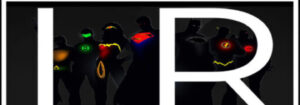Khushwant Singh is rumored to be one of the greatest English-language authors of Indian origin—and this book proves it. It is a tragedy that he is no longer with us, but just like any other intellectual, his ideas have lived on.
Train to Pakistan is considered one of his signature works. It’s a fictional tale set on the backdrop of the non-fictional separation of Pakistan and India that took place in 1947; the Partition.
This is how the blurb on Oxford University Press’s edition reads:
‘THE FACT IS, BOTH SIDES KILLED. BOTH SHOT AND STABBED AND SPEARED AND CLUBBED. BOTH TORTURED. BOTH RAPED.’
It is the summer of 1947. But Partition does not mean much to the Sikhs and the Muslims of Mano Majra, a village on the border of India and Pakistan. Then, a local moneylender is murdered, and suspicion falls on Juggut Singh, the village gangster who is in love with a Muslim girl. When a train arrives, carrying the bodies of dead Sikhs, the village is transformed into a battlefield, and neither the magistrate nor the police are able to stem the rising tide of violence. Amidst conflicting loyalties, it is left to Juggut Singh to redeem himself and reclaim peace for his villa.
I have to admit that sometimes when you read the description of a book, you don’t get what you bargained for, similar to when you watch an awesome trailer of a lackluster movie. Yet, Train to Pakistan complemented its blurb word-by-word.
The descriptions are vivid; there’s an unparalleled attention to detail relative to both the beauty of South Asia and also the horrors that occurred during the period of division.
What I adored most was how Singh didn’t sugarcoat anything. His storytelling was hardcore in the sense that no party was spared from his yarn. The Hindus, the Muslims, and the Sikhs; all were shown in a similar light and there was no bias whatsoever. I think that history buffs will find this make-believe novel more realistic than the versions of the Partition told in various Pakistan Studies syllabuses.
His writing style does share some of Pakistani writer Mohammed Hanif’s trademarks, i.e., dark humor and a preference for satire. The story includes the perfect blend of comedy and tragedy—and after you’ve finished reading it—you’ll be left with a bittersweet taste in your mouth.
The characters are also well-created and the best aspect was that every major individual shared an equal amount of space in the novel. Juggut Singh is the main character but other figures, no matter how small their role in the primary plot, are superbly constructed and you’d wish the novel had been at least 300 pages long as opposed to the 260 pages of the OUP version.
To end with, Train to Pakistan is brilliant in every sense of the word. Its finale is breath-taking, and the overall plot is unpredictable; which I find is a rare aspect for works penned by non-Native authors of the English language.


